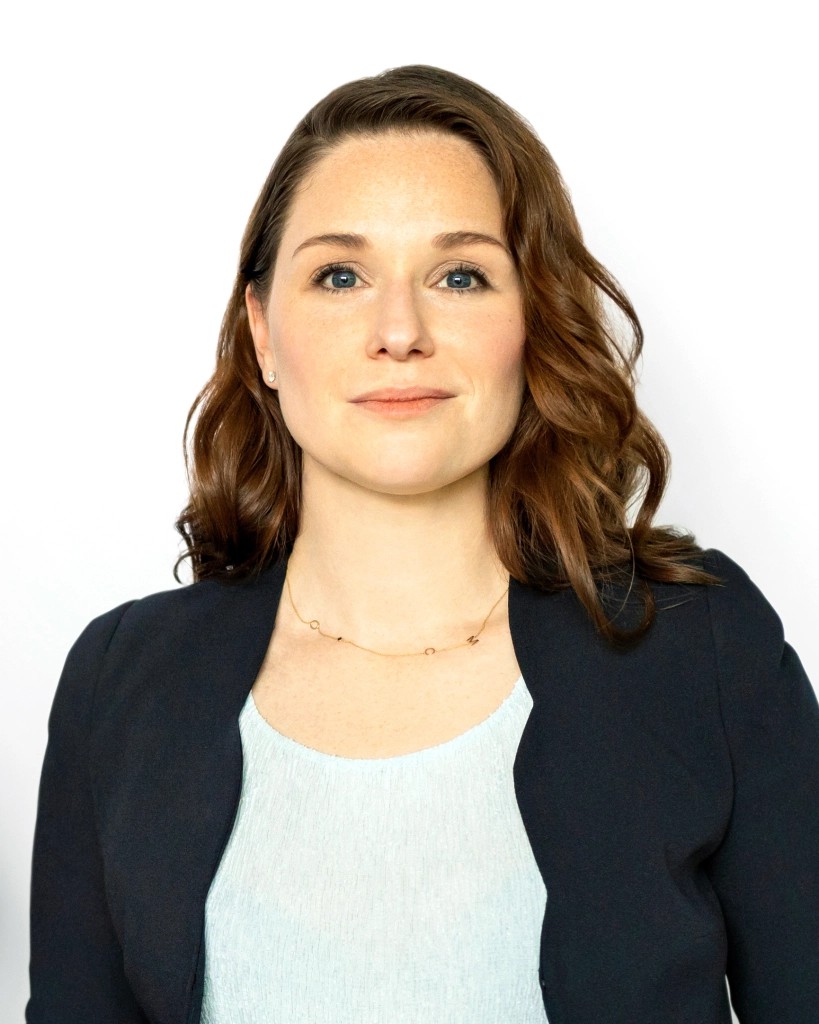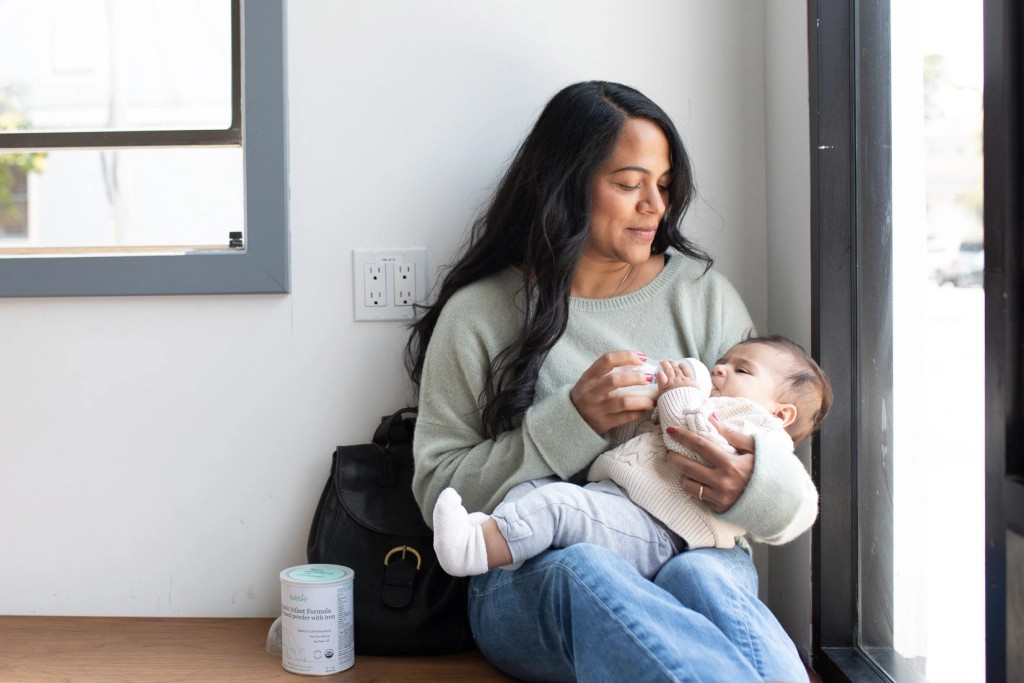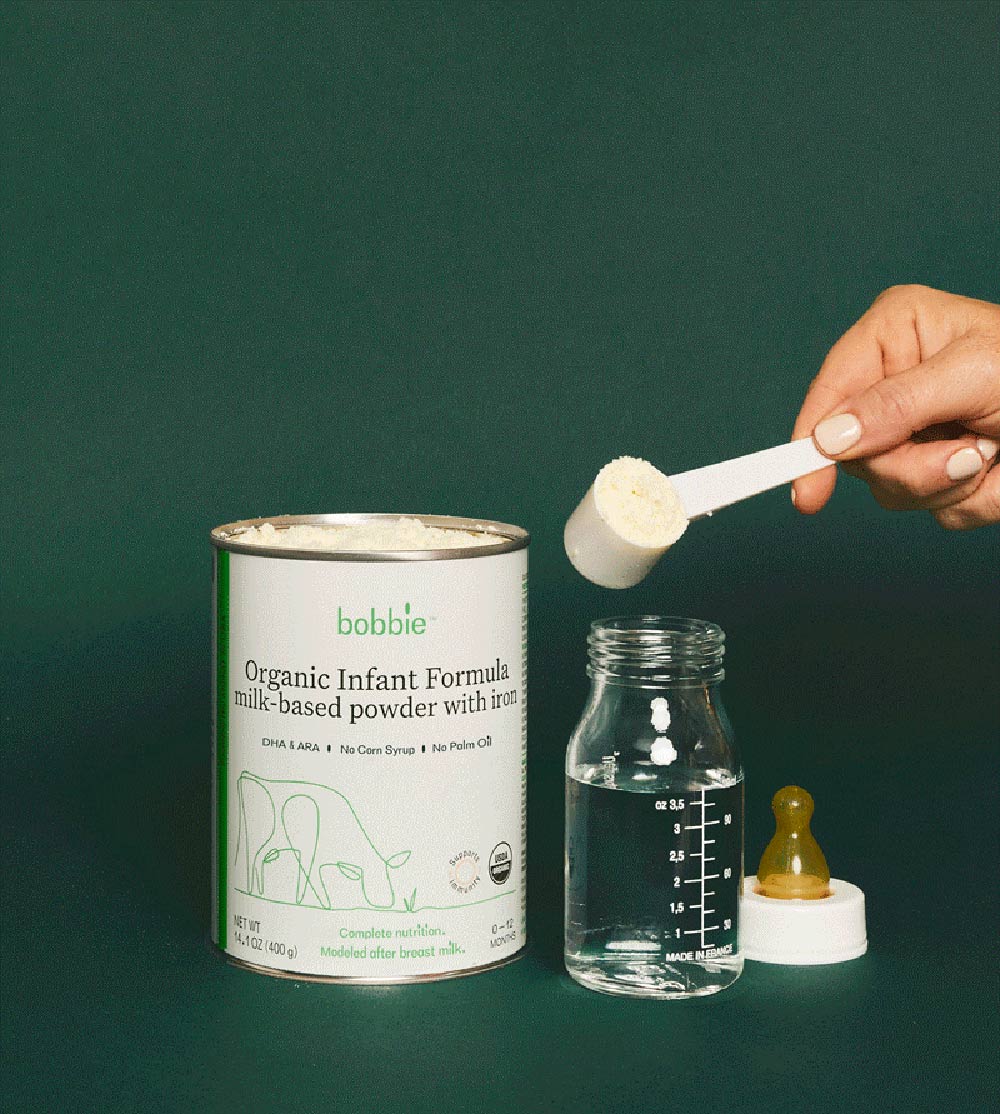
2019年6月的某一天下午,美國食品與藥品管理局(Food and Drug Administration,以下簡稱FDA)的兩名檢查員來到了位于舊金山的一座倉庫。
這兩位身穿制服的女士從公文包里拿出一篇打印好的《財富》雜志文章,文章的標題是《初創公司顛覆吸奶器行業。嬰兒配方奶粉會是下一個嗎?》。她們在這篇文章中重點圈出了所有出現“嬰兒配方奶粉”字樣的內容。
這兩位FDA的官員正在約談Bobbie公司的創始人。Bobbie是一家規模很小的銷售配方奶粉的新公司。這家初創公司向約100位灣區客戶推出訂購計劃試點。在之后的10天里,公司創始人一直小心謹慎地在其網站和產品包裝上宣傳其產品是“幼兒奶粉”或“配方奶粉”。然而,《財富》雜志的文章和其他文章都將這家初創公司描述為“嬰兒配方奶粉”行業中的一員。
這足以引起FDA的關注。該政府部門對嬰幼兒配方奶粉的監管,比對其他大部分食品都要嚴格,甚至高于可以攝入其他食物的兒童使用的其他類型的配方奶粉。在美國,作為嬰兒配方奶粉銷售的所有產品必須符合《嬰兒配方食品法》(Infant Formula Act)的要求,包括對使用配方奶粉的嬰兒進行成長監控研究、營養測試和食品安全等規則。在美國境外生產的產品通常無法滿足這些規定。Bobbie使用歐洲原材料在德國生產奶粉,其目的就是生產與在歐盟國家銷售的配方奶粉接近的產品。Bobbie銷售的對象是注重配料的美國父母,他們有時候會通過Bobbie的聯合創始人勞拉?莫迪所說的美國經銷商“黑市”購買歐洲生產的配方奶粉。
FDA的檢查人員在倉庫結束與Bobbie團隊的談話之后,這家公司收到了FDA的警告和召回令。公司創始人猜測,Bobbie是史上規模最小的收到警告和召回令的美國公司之一。當時公司剛剛成立18個月,員工不到15人,他們給100位訂閱用戶打電話,向用戶解釋說他們收到了FDA的警告,并被要求停止奶粉生產。公司創始人和員工家里都有剛出生的孩子,他們自己甚至都停止使用公司的配方奶粉。公司的首席執行官莫迪表示:“我從來沒有感到如此脆弱。我有時候會覺得這不公平。我們在一個城市進行了試點,但我們還是進行了全國召回。”
莫迪稱,FDA的行動讓她倍感意外,因為市場上有許多幼兒奶粉、配方奶粉甚至“夜間”配方奶粉都未受到該部門同等程度的審查。她說,公司最大的錯誤是側重于網上傳達信息,并沒有在產品包裝上說明奶粉適用人群是“12個月及以上的”幼兒,而不是新生兒。莫迪說:“現在回想起來,很難讓人不感到懊悔,我們本應該注意到這個問題。這只是一個失誤而已。”
對于一家試圖顛覆配方奶粉行業的硅谷初創公司,FDA反應如此謹慎,并不令人意外。該政府機構堅持嚴格履行其職責,以確保將配方奶粉作為唯一營養來源的兒童,所使用的產品是健康、安全的。莫迪表示:“嬰兒配方奶粉行業不存在任何被誤解的空間。”此外,多年以來,美國的嬰兒配方奶粉一直被幾家大公司主導,如美贊臣(Mead Johnson)的Enfamil和雅培(Abbott Nutrition)的心美力(Similac)等。在過去五年中,美國市場一直沒有新的嬰兒配方奶粉品牌出現。

大公司生產的嬰幼兒配方奶粉擠滿了藥店的貨架。這些公司有律師和監管專業人員向FDA報告標簽或配料的任何調整,而其他大部分食品或膳食補充劑都不需要這種“上市前通告”。Bobbie是一個小團隊,服務半徑只有15英里,僅有幾天的服務經驗,所以在FDA知道這家新嬰幼兒配方奶方公司的時候,它還沒有與該部門建立起長期的合作關系。
莫迪認為公司始終堅持的使命是,為無法母乳喂養(或用吸奶器吸奶),又不想讓孩子使用美國配方奶粉的媽媽們,提供一種安全、健康的替代選擇;父母之所以從歐洲購買配方奶粉,是因為相較于許多美國同類產品中所含的棕櫚油、玉米糖漿和傳統牛乳,他們更喜歡歐洲奶粉中的乳糖、椰子油和食草牛乳配方。
莫迪曾經擔任愛彼迎(Airbnb)酒店業務總監,她因為自己無法用母乳喂養孩子,才有了創業的想法。莫迪希望自己的公司能夠與在吸奶器行業橫空出世的Elvie和Willow等初創公司一樣,顛覆配方奶粉行業。配方奶粉一直在向不需要它的媽媽們大力推銷,而使用它的媽媽們又會產生羞愧感。莫迪在2019年告訴《財富》雜志:“當前喂養孩子的實際情況是我們無法接受的。15%至20%的女性無法產生足夠的母乳以進行純母乳喂養。”

在FDA發出警告一年多以后,Bobbie重新振作了起來。公司在致客戶的信中保證,公司不會批評FDA的決定。公司在寫給訂閱用戶的信函中表示:“我們承認我們的標簽和市場營銷可能存在誤導,對此我們向所有客戶致以誠摯的歉意。我們知道這樣做很難,但我們必須這樣做。安全是重中之重,這關系到我們的下一代,并且作為家長,在為孩子選購產品時,理應得到一份安心的承諾。”
Bobbie發出的信息引起了多方關注,他們在Bobbie東山再起的過程中發揮了關鍵作用。Bobbie公司的目標一直是在美國進行生產,但能夠生產嬰兒配方奶粉的設施有最低訂單數量要求,這遠高于這家初創公司可以達到的訂單量。制造商百利高(Perrigo)專門生產零售商自有品牌的配方奶粉和兒童營養飲品。盡管該公司也有意為千禧一代父母們生產產品,但就在幾個月前,當Bobbie曾向百利高發送“冷郵件”,請求其幫忙生產配方奶粉時,百利高還是拒絕了這一請求。而目前,百利高正在佛蒙特州為Bobbie公司生產配方奶粉。百利高的高管艾德里安?謝里甘說:“我們注意到,人們需要一種接受FDA監管的產品,以此滿足消費者[對于歐盟配方奶粉]的偏愛。我之所以再次聯系勞拉,是因為她們對FDA警告的處理方式打動了我;她們在與消費者溝通的時候非常透明,傳達的信息也很明確。”
之前的產品召回也引起了一位新投資者的注意,她就是Wave Capital的薩拉?阿德勒。當莫迪在愛彼迎任職的時候,阿德勒就已經認識莫迪,但她并沒有參與Bobbie最初的240萬美元種子輪融資,因為她對向美國市場推出一種新配方奶粉的可行性和這種產品的需求存在質疑。但公司應對召回的做法讓她改變了心意。在說到投資Bobbie的最終決定時,阿德勒表示:“公司應對FDA的做法體現出了管理者的成熟度,很顯然,投資這家公司是一個正確的決定。”
一家新制造商和一位新投資者給Bobbie樹立了信心,因此公司投入資源開發一款不會引起FDA不滿的產品,并與該部門建立了良好的關系。在新任監管負責人克里斯蒂娜?伯布里克的指導下,公司在2019年11月參觀了FDA位于馬里蘭州銀泉的辦公室,并與官員討論了公司對美國供應鏈所做的調整。伯布里克此前曾經在雅培負責嬰兒配方奶粉監管調查。
 Bobbie公司經過修改的嬰兒配方奶粉獲得了美國食品與藥品管理局的批準,于1月5日開始在全國發售。圖片來源:Courtesy of Bobbie
Bobbie公司經過修改的嬰兒配方奶粉獲得了美國食品與藥品管理局的批準,于1月5日開始在全國發售。圖片來源:Courtesy of Bobbie如今,Bobbie從1月5日開始,向全美銷售價值24美元的“歐式配方”嬰兒奶粉。這一代配方奶粉被認為與之前招來警告的奶粉截然不同;FDA的發言人證實,前一代奶粉“沒有重新進入市場”。
一家消費品初創公司很少會遭遇監管挑戰。Bobbie的新投資者阿德勒將公司應對監管部門的做法與莫迪在愛彼迎見到的模式進行了對比。愛彼迎雖然有時候依舊會規避政府的限制,但相比于常常被拿來對比的Uber,愛彼迎在成長階段更有可能與監管部門達成合作。阿德勒說道:“她們本可以嘗試反抗,并繼續向市場銷售她們努力推廣的產品。但她們卻這樣反思:從商業的角度,我們的長期目標到底是什么?”
Bobbie有12名員工,她們共有19個孩子,其中有6個嬰兒,她們很激動能夠再次使用自己公司的產品。莫迪和她的團隊相信,相比于堅持推廣“配方奶粉”,公司現在處在更有利的位置。阿德勒說:“如果當初FDA沒有因為那篇新聞報道找上門來,她們也不會有今天這樣好的局面。”(財富中文網)
翻譯:劉進龍
審校:汪皓
2019年6月的某一天下午,美國食品與藥品管理局(Food and Drug Administration,以下簡稱FDA)的兩名檢查員來到了位于舊金山的一座倉庫。
這兩位身穿制服的女士從公文包里拿出一篇打印好的《財富》雜志文章,文章的標題是《初創公司顛覆吸奶器行業。嬰兒配方奶粉會是下一個嗎?》。她們在這篇文章中重點圈出了所有出現“嬰兒配方奶粉”字樣的內容。
這兩位FDA的官員正在約談Bobbie公司的創始人。Bobbie是一家規模很小的銷售配方奶粉的新公司。這家初創公司向約100位灣區客戶推出訂購計劃試點。在之后的10天里,公司創始人一直小心謹慎地在其網站和產品包裝上宣傳其產品是“幼兒奶粉”或“配方奶粉”。然而,《財富》雜志的文章和其他文章都將這家初創公司描述為“嬰兒配方奶粉”行業中的一員。
這足以引起FDA的關注。該政府部門對嬰幼兒配方奶粉的監管,比對其他大部分食品都要嚴格,甚至高于可以攝入其他食物的兒童使用的其他類型的配方奶粉。在美國,作為嬰兒配方奶粉銷售的所有產品必須符合《嬰兒配方食品法》(Infant Formula Act)的要求,包括對使用配方奶粉的嬰兒進行成長監控研究、營養測試和食品安全等規則。在美國境外生產的產品通常無法滿足這些規定。Bobbie使用歐洲原材料在德國生產奶粉,其目的就是生產與在歐盟國家銷售的配方奶粉接近的產品。Bobbie銷售的對象是注重配料的美國父母,他們有時候會通過Bobbie的聯合創始人勞拉?莫迪所說的美國經銷商“黑市”購買歐洲生產的配方奶粉。
FDA的檢查人員在倉庫結束與Bobbie團隊的談話之后,這家公司收到了FDA的警告和召回令。公司創始人猜測,Bobbie是史上規模最小的收到警告和召回令的美國公司之一。當時公司剛剛成立18個月,員工不到15人,他們給100位訂閱用戶打電話,向用戶解釋說他們收到了FDA的警告,并被要求停止奶粉生產。公司創始人和員工家里都有剛出生的孩子,他們自己甚至都停止使用公司的配方奶粉。公司的首席執行官莫迪表示:“我從來沒有感到如此脆弱。我有時候會覺得這不公平。我們在一個城市進行了試點,但我們還是進行了全國召回。”
莫迪稱,FDA的行動讓她倍感意外,因為市場上有許多幼兒奶粉、配方奶粉甚至“夜間”配方奶粉都未受到該部門同等程度的審查。她說,公司最大的錯誤是側重于網上傳達信息,并沒有在產品包裝上說明奶粉適用人群是“12個月及以上的”幼兒,而不是新生兒。莫迪說:“現在回想起來,很難讓人不感到懊悔,我們本應該注意到這個問題。這只是一個失誤而已。”
對于一家試圖顛覆配方奶粉行業的硅谷初創公司,FDA反應如此謹慎,并不令人意外。該政府機構堅持嚴格履行其職責,以確保將配方奶粉作為唯一營養來源的兒童,所使用的產品是健康、安全的。莫迪表示:“嬰兒配方奶粉行業不存在任何被誤解的空間。”此外,多年以來,美國的嬰兒配方奶粉一直被幾家大公司主導,如美贊臣(Mead Johnson)的Enfamil和雅培(Abbott Nutrition)的心美力(Similac)等。在過去五年中,美國市場一直沒有新的嬰兒配方奶粉品牌出現。
大公司生產的嬰幼兒配方奶粉擠滿了藥店的貨架。這些公司有律師和監管專業人員向FDA報告標簽或配料的任何調整,而其他大部分食品或膳食補充劑都不需要這種“上市前通告”。Bobbie是一個小團隊,服務半徑只有15英里,僅有幾天的服務經驗,所以在FDA知道這家新嬰幼兒配方奶方公司的時候,它還沒有與該部門建立起長期的合作關系。
莫迪認為公司始終堅持的使命是,為無法母乳喂養(或用吸奶器吸奶),又不想讓孩子使用美國配方奶粉的媽媽們,提供一種安全、健康的替代選擇;父母之所以從歐洲購買配方奶粉,是因為相較于許多美國同類產品中所含的棕櫚油、玉米糖漿和傳統牛乳,他們更喜歡歐洲奶粉中的乳糖、椰子油和食草牛乳配方。
莫迪曾經擔任愛彼迎(Airbnb)酒店業務總監,她因為自己無法用母乳喂養孩子,才有了創業的想法。莫迪希望自己的公司能夠與在吸奶器行業橫空出世的Elvie和Willow等初創公司一樣,顛覆配方奶粉行業。配方奶粉一直在向不需要它的媽媽們大力推銷,而使用它的媽媽們又會產生羞愧感。莫迪在2019年告訴《財富》雜志:“當前喂養孩子的實際情況是我們無法接受的。15%至20%的女性無法產生足夠的母乳以進行純母乳喂養。”
在FDA發出警告一年多以后,Bobbie重新振作了起來。公司在致客戶的信中保證,公司不會批評FDA的決定。公司在寫給訂閱用戶的信函中表示:“我們承認我們的標簽和市場營銷可能存在誤導,對此我們向所有客戶致以誠摯的歉意。我們知道這樣做很難,但我們必須這樣做。安全是重中之重,這關系到我們的下一代,并且作為家長,在為孩子選購產品時,理應得到一份安心的承諾。”
Bobbie發出的信息引起了多方關注,他們在Bobbie東山再起的過程中發揮了關鍵作用。Bobbie公司的目標一直是在美國進行生產,但能夠生產嬰兒配方奶粉的設施有最低訂單數量要求,這遠高于這家初創公司可以達到的訂單量。制造商百利高(Perrigo)專門生產零售商自有品牌的配方奶粉和兒童營養飲品。盡管該公司也有意為千禧一代父母們生產產品,但就在幾個月前,當Bobbie曾向百利高發送“冷郵件”,請求其幫忙生產配方奶粉時,百利高還是拒絕了這一請求。而目前,百利高正在佛蒙特州為Bobbie公司生產配方奶粉。百利高的高管艾德里安?謝里甘說:“我們注意到,人們需要一種接受FDA監管的產品,以此滿足消費者[對于歐盟配方奶粉]的偏愛。我之所以再次聯系勞拉,是因為她們對FDA警告的處理方式打動了我;她們在與消費者溝通的時候非常透明,傳達的信息也很明確。”
之前的產品召回也引起了一位新投資者的注意,她就是Wave Capital的薩拉?阿德勒。當莫迪在愛彼迎任職的時候,阿德勒就已經認識莫迪,但她并沒有參與Bobbie最初的240萬美元種子輪融資,因為她對向美國市場推出一種新配方奶粉的可行性和這種產品的需求存在質疑。但公司應對召回的做法讓她改變了心意。在說到投資Bobbie的最終決定時,阿德勒表示:“公司應對FDA的做法體現出了管理者的成熟度,很顯然,投資這家公司是一個正確的決定。”
一家新制造商和一位新投資者給Bobbie樹立了信心,因此公司投入資源開發一款不會引起FDA不滿的產品,并與該部門建立了良好的關系。在新任監管負責人克里斯蒂娜?伯布里克的指導下,公司在2019年11月參觀了FDA位于馬里蘭州銀泉的辦公室,并與官員討論了公司對美國供應鏈所做的調整。伯布里克此前曾經在雅培負責嬰兒配方奶粉監管調查。
如今,Bobbie從1月5日開始,向全美銷售價值24美元的“歐式配方”嬰兒奶粉。這一代配方奶粉被認為與之前招來警告的奶粉截然不同;FDA的發言人證實,前一代奶粉“沒有重新進入市場”。
一家消費品初創公司很少會遭遇監管挑戰。Bobbie的新投資者阿德勒將公司應對監管部門的做法與莫迪在愛彼迎見到的模式進行了對比。愛彼迎雖然有時候依舊會規避政府的限制,但相比于常常被拿來對比的Uber,愛彼迎在成長階段更有可能與監管部門達成合作。阿德勒說道:“她們本可以嘗試反抗,并繼續向市場銷售她們努力推廣的產品。但她們卻這樣反思:從商業的角度,我們的長期目標到底是什么?”
Bobbie有12名員工,她們共有19個孩子,其中有6個嬰兒,她們很激動能夠再次使用自己公司的產品。莫迪和她的團隊相信,相比于堅持推廣“配方奶粉”,公司現在處在更有利的位置。阿德勒說:“如果當初FDA沒有因為那篇新聞報道找上門來,她們也不會有今天這樣好的局面。”(財富中文網)
翻譯:劉進龍
審校:汪皓
On a June afternoon in 2019, two inspectors from the Food and Drug Administration visited a warehouse in San Francisco.
The uniformed women pulled out of a briefcase a printout of a Fortune story headlined: "Startups disrupted breast pumps. Is infant formula next?" On that piece of paper, they had highlighted every place the words "infant formula" appeared.
The FDA officials were there to speak to the people behind Bobbie, a very small, very new company selling formula. In the 10 days since the launch of the startup's pilot subscription program serving about 100 Bay Area customers, the company's founders had been careful to refer to their product on their website and packaging only as "toddler formula" or "companion formula." However, Fortune’s story—and a few others—discussed the startup as part of the "infant formula" industry.
That was enough to grab the FDA's attention. The governmental agency closely watches infant formulas, overseeing the product with a keener eye than it does most foods, or even other types of formula aimed at children old enough to also be consuming other foods. All products sold as infant formulas in the United States must meet the requirements of the Infant Formula Act, which include a growth monitoring study for babies who consume the formula, nutrient testing, and food safety rules. Products made outside the U.S. often don't meet those exact regulations. Bobbie's offering was made in Germany with European ingredients and was meant to approximate the kind of formula sold in European Union countries. The company was marketing to ingredient-conscious American parents who sometimes buy European-made formula on what Bobbie cofounder Laura Modi calls a "black market" of U.S. distributors.
After the FDA inspectors spoke with the Bobbie team at the warehouse, the startup became, its founders suspect, one of the smallest U.S. companies to ever go through an FDA warning and recall. The then-18-month-old business with fewer than 15 employees called its 100 subscribers, alerting them to the FDA's warning, and shut down its production. Bobbie's founders and employees, who had new babies of their own, even stopped using the powder formula themselves. "I'd never felt more vulnerable," says Modi, the company's CEO. "I had a moment of feeling like it wasn't fair…We had a pilot in one city, but we had a national recall."
Modi says she was taken aback by the FDA’s action because several toddler formulas, companion formulas, and even "nighttime" formulas on the market had not attracted similar FDA scrutiny. The company's biggest mistake, she says, was focusing on its messaging online and not specifying on the product's packaging that it was for children "12 months and up," rather than infants. "It's hard not to look back now and say, We should have seen it," says Modi. "It was just a miss."
It's not surprising that the FDA reacted cautiously to a Silicon Valley startup attempting to disrupt the formula space. The governmental agency takes seriously its responsibility to ensure children who rely on formula as their sole source of nutrition are fed a healthy, safe product. "When it comes to infant formula, there's zero room for misinterpretation," Modi says. Furthermore, the infant formula space in the United States has been dominated for years by just a few large players—Mead Johnson's Enfamil and Abbott Nutrition's Similac—with no new infant formula on the market in the past five years.
At the massive companies that produce the kind of baby formulas that dominate drugstore shelves, lawyers and regulatory professionals are responsible for updating the agency on any labeling or ingredient changes—a "pre-market notification" not required for most other food products or supplements. Bobbie, with its skeleton team and mere days of experience serving customers in a 15-mile radius, had no such longstanding relationships by the time the FDA became aware of its new entrant into the space.
For Modi, the startup's mission was always to provide a safe, healthy alternative for mothers who can't breastfeed or pump breast milk and don't want to feed their children the formulas on American shelves; the parents who buy from Europe prefer the region's lactose, coconut oil, and grass-fed dairy formula to the palm oil, corn syrup, and conventional dairy found in many U.S. products.
Modi, a former Airbnb director of hospitality, came up with the idea when she couldn't breastfeed her own child. Just as startups like Elvie and Willow have burst onto the scene in the breast pump space, Modi wanted to disrupt formula—a product that has been both pushed on mothers who don't need it and accompanied by shame for many of those who do. "We are not accepting the realities of feeding your child in today’s world,” Modi told Fortune in 2019. "Fifteen to 20% of women physically cannot produce enough breast milk to exclusively breastfeed."
Over the year following its FDA wake-up call, Bobbie regrouped. In its messaging to its customers, the company made sure not to cast aspersions on the FDA's decision. "We accept that our labeling and our marketing may have been misleading, and for that we truly apologize to all of our customers. We anticipated this would be hard, and it should be," the company wrote in a letter to its subscribers. "When it comes to our kids, safety comes first and every parent deserves peace of mind."
That messaging caught the eye of a few players who have proved crucial in Bobbie's second act. The company's goal had always been to manufacture in the U.S., but the facilities capable of producing infant formula imposed minimum orders that were higher than the early-stage company felt it could commit to. The manufacturer Perrigo, which makes store-brand formulas and pediatric nutrition drinks, had declined a cold email request to make Bobbie's formula months earlier—even though it was interested in producing a product for millennial parents. "We noticed there was a need for an FDA-regulated product that served consumers' preference [for an EU-style formula]," says Adriane Sherogan, an executive at Perrigo, which is now producing Bobbie's formula in Vermont. "What made me reach out to Laura again was the way they handled the FDA advisory; they were very transparent and clear in communications to consumers."
The recall, too, caught the eye of a new investor, Sara Adler at Wave Capital. Adler knew Modi from Airbnb but decided not to invest in her company's original $2.4 million seed round—questioning the feasibility of bringing a new formula to market and the demand for such a product. But the company's handling of the recall won her over. "The level of maturity they brought to their approach to the FDA made it a no-brainer," Adler says of her eventual decision to invest.
With the confidence of a new manufacturer and a new investor, Bobbie put its resources behind creating a product that wouldn't draw the ire of the FDA and building goodwill with the agency. Under the guidance of a new head of regulatory, Christina Berberich—who previously handled infant formula regulatory findings at Abbott—the company visited the FDA's offices in Silver Spring, Md., in November 2019 and spoke to officials about the company's revamped U.S. supply chain.
Now Bobbie is set to ship its $24 "European-style recipe" infant formula nationwide starting Jan. 5. This iteration of its formula is considered a different product than the one that led to a consumer warning; that formula "did not return to market," confirms an FDA spokesperson.
The regulatory challenges are unusual for such a young consumer goods startup. Adler, Bobbie's new investor, compares the company's approach to regulators to the model Modi saw at Airbnb, which, while still sometimes working around government restrictions, was more likely in its growth stage to cooperate with regulators than was its frequent point of comparison, Uber. "They could have tried to fight it and continued to sell the product they'd worked to bring to market," Adler says. "Instead they said, from a business perspective, what's our long-term goal?"
The 12 employees at Bobbie, who altogether have 19 kids, including six infants, are excited to once again be able to use their own product. Modi and her team believe they're in a stronger position now than they would have been if they had moved forward with their "companion formula." "Had they not had the FDA coming to them because of press," Adler says, "they wouldn't be where they are now."






